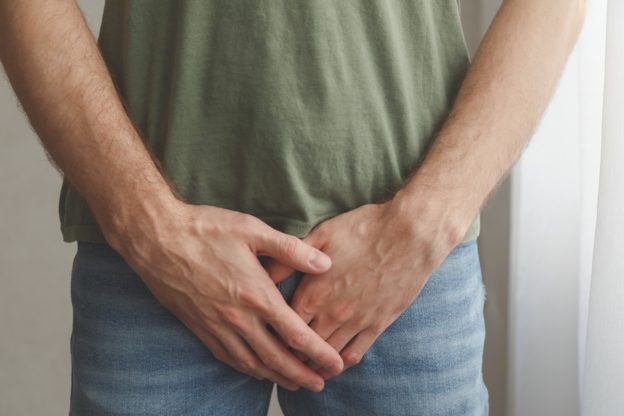As more couples are turning to fertility clinics for infertility treatments, it is important to separate male fertility myths from male fertility facts. The conflicting information of what to eat and wear or how to exercise can make anyone question what is fact and what is fiction.
Myth: Male fertility does not decline with age
False. Male fertility does decline with age, especially after the age of 40. This does not mean a male cannot father a child but the chances are lower than they would be for a male in his 20s because the quality of the sperm decreases over time.
Myth: Infertility is always a female issue
False. A common myth around male fertility is the infertility factors must be attributed to the female. One-third of all infertile cases are male-dominated.
Myth: Tight underwear or pants can cause infertility in men
False. Wearing tight-fitting underwear or pants can increase the scrotal temperature which needs to be three to four degrees below the normal human body temperature of 98.6°F for fertility factors. That being said, there is no scientific evidence stating tight clothing causes infertility.
Myth: Frequent ejaculation leads to male infertility
False. The number of times a male ejaculates has no bearing on their fertility condition. Through sexual intercourse or masturbation, frequent ejaculation was considered in one study to improve the motility of the sperm. This same study did note it does not have any effect on the semen volume nor the shape of the sperm.
Myth: All men with erectile dysfunction are infertile
False. An erectile dysfunction condition does not cause infertility but can be linked to the condition depending on the root cause of the ED.
Myth: Male fertility is solely based on physical health and age
False. While the physical health and age may play a role in one’s infertility, neither is the sole cause of male fertility issues.

Myth: Consuming certain foods or supplements can significantly boost male fertility
False. Yes, a healthy lifestyle of a well-balanced diet can help improve fertility particularly low sperm count but it takes more than avoiding high-fat foods to boost overall fertility.
Also Read: Foods to Increase Sperm Count and Motility
Myth: If a man has fathered children before, he cannot be infertile
False. Unfortunately, fertility knows no boundaries or timelines. A man who has fathered one or more children in the past may have fertility issues related to age, health, and other factors.
Myth: Male infertility is always a permanent condition
False. Thanks to various fertility procedures, a male’s infertility condition may be treated. With healthy lifestyle choices, supplements, and medical intervention, treatable issues such as sperm quality and quantity may be improved.
Myth: Masturbation causes male infertility
False. Masturbation does not cause infertility. It is a healthy sexual outlet for both males and females, regardless of the number of times performed daily.
Myth: Using a laptop on the lap decreases male fertility
False. One of the top myths about male fertility is the frequent use of laptops and the potential negative effects of the electromagnetic waves emitted. While there is no scientific proof to this claim, the heat and EMWs may damage DNA of the sperm leading to a low sperm count and motility.
Myth: Male infertility is hereditary
False. While it is true genetics can play a role in male infertility, it is not the deciding factor. In those with a predisposed condition, other issues such as pelvic injuries, infections, and/or lifestyle habits contribute to the infertility diagnosis.
Myth: Cycling causes infertility in men
False. Cycling does not cause infertility, even with heat generated on the testes by the position of the seat. Past small studies have linked a lower sperm count and low motile sperm in cyclists but larger and more systematic studies have found no significant link between cycling and infertility.
Myth: Wearing boxers instead of briefs improves male fertility
False. While the whole boxers versus briefs question has been a long-running debate between infertile couples, there is no scientific evidence proving one is better than the other. The debate becomes an issue when the briefs are tight, increasing the scrotal temperature which must be maintained at a certain temperature range to not affect sperm quality.
Myth: Exposure to cell phone radiation causes male infertility
Possible. A recent review of studies conducted between 2012 and 2021 prepared by various global clinical trials suggests that the quality of the sperm may be decreased with long-term cell phone use. These, and other related studies, have shown there is a discord with the electromagnetic waves from cell phones and the brain, heart, endocrine system, and reproductive function.
Myth: Fertility treatments always lead to multiple pregnancies
False. The process of fertility treatments such as in vitro fertilization (IVF) does not always result in multiple pregnancies. In fact, it is the prescribed medication with the treatment that increases the chance of producing multiple embryos.
Myth: Over-the-counter male enhancement supplements improve fertility
False. While certain male enhancement supplements have been known to help with erectile dysfunction, the chemical components of some supplements may decrease fertility.
Myth: Consuming soy products reduces male fertility
While some research points to a connection between male infertility and the use of soy, there is no conclusive evidence to link soy consumption with low or abnormal sperm.
Myth: Only physically fit men have high fertility
False. While moderate exercise, healthy diet and weight, and the absence of substance use support fertility, those who follow a less than healthy lifestyle can still have a high fertility.
Contact ONE Fertility for Comprehensive & Personalized Care Plans
As a leading fertility clinic, ONE Fertility Kitchner Waterloo offers infertility assessment, treatment, and counselling for both partners. We use evidence-based programs to help you on this amazing journey to parenthood. Call us at (519) 650-0011 or email info@onefertilitykw.com for more information.





